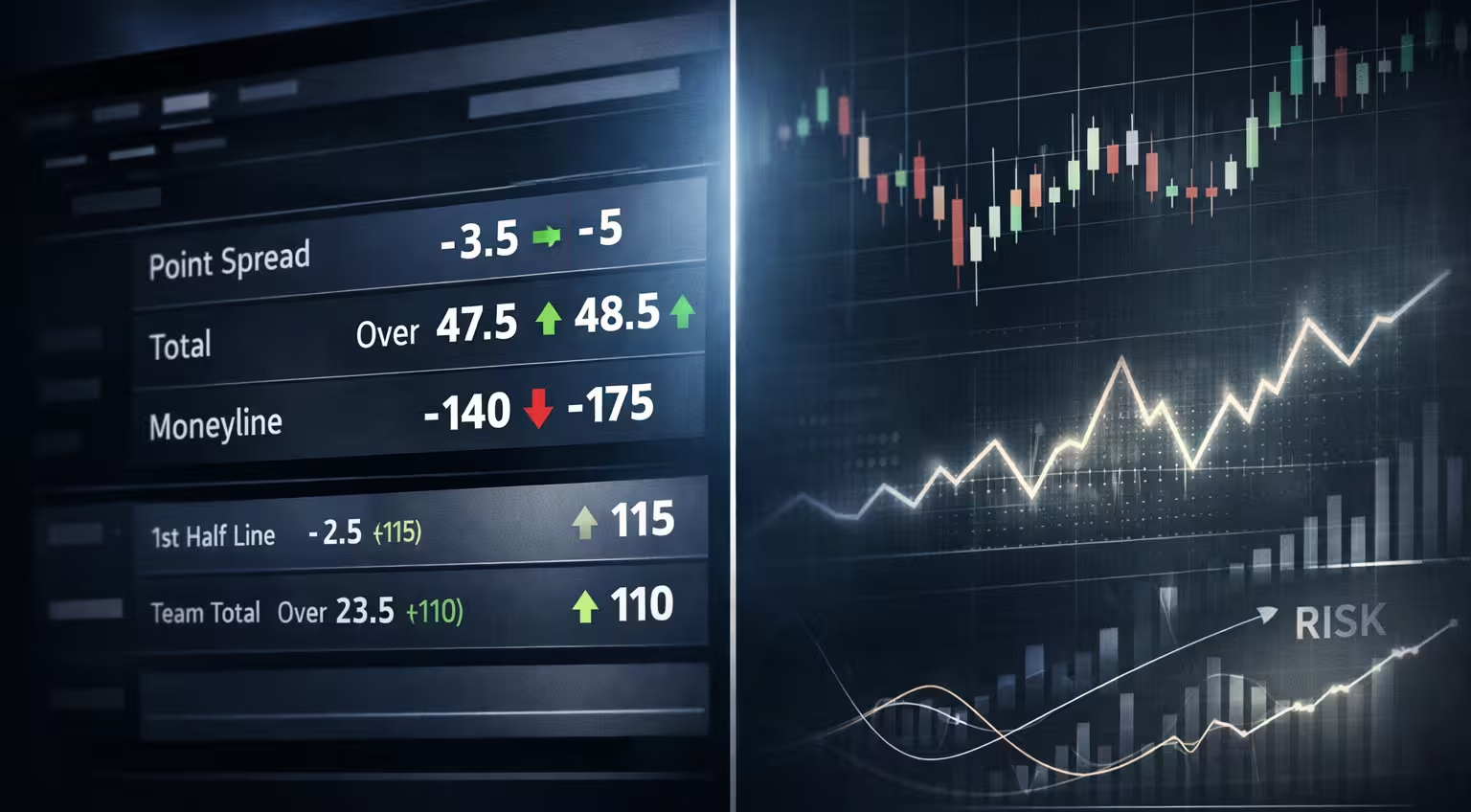The Future of eSports Gambling and Virtual Competitions

Before writing this, I didn’t really know what eSports were. I figured it was some sort of video game category, but other than that? Clueless.
I wasn’t wrong, but I wasn’t right either. But I did get a thorough education, and I’m all caught up! And I’m going to share my knowledge with you, lovely readers.
eSports has gone from niche LAN parties to a billion-dollar industry that packs arenas and has global online viewership. And now the betting markets want to get in on the action. Just like traditional sports betting went nuts post-2018, competitive gaming is seeing a big surge in regulated wagering interest.
Why now? This year and the next look like it’s the tipping point: more U.S. states are considering legalizing eSports bets, publishers (like Riot Games) are loosening sponsorship rules, and new bet types (live micro-wagers, betting exchanges, same-game parlays) are coming to the fore. This all means big opportunities and new challenges for all involved in the industry.
Betting on eSports is an obvious draw; it taps into a young, tech-savvy fanbase and high-octane battles. But the stakes are not low: the industry has to balance massive growth with responsibility. There’s huge revenue potential from a global audience that’s already placed $2.5 billion in eSports wagers in 2024, and it’s projected to hit $3 billion by 2026.
But regulators and stakeholders worry about protecting minors, preventing match-fixing, and managing the “skin gambling” grey markets that have plagued it in the past.
So we are gonna map out where eSports betting is legal today (and where it isn’t), highlight cutting-edge products for the future, and tell you how to engage with the market in a responsible way. You’ll find out how some major game publishers are welcoming gambling partnerships, what new formats like AI-driven virtual matches could do, and practical tips for betting smarter on your favorite eSports!
Quick Facts
A couple of things to start before we get into the weeks:
- Market Growth: Global eSports betting revenue was $2.5 billion in 2024, projected to hit $2.8B in 2025, and could top $3B by 2026. In 2024, 74 million people worldwide placed an eSports wager, which was triple the number from 2017.
- Integrity Trends: The fight against match-fixing is getting results. Suspicious match alerts dropped 17% globally in 2024 (the first decline in years) as sportsbooks and regulators adopted AI-driven monitoring. Sportradar’s Universal Fraud Detection System scanned 850,000 matches across 70 sports (eSports included) and helped flag over 1,100 suspect games, so new tech and data-sharing are paying off.
- Publisher Policy Shift: In 2025, Riot Games reversed its longstanding stance and now allows betting sponsors for top-tier League of Legends and VALORANT teams. The policy change, which has strict integrity guardrails, paves the way for regulated sportsbooks to partner with Tier-1 eSports teams in the Americas and Europe. It’s a landmark move that proves game publishers see regulated betting as part of the ecosystem. Riot insists on safeguards to protect competitive integrity.
Why do the above things matter? Because now leagues and teams can pursue sponsorship deals with major bookmakers, which will increase advertising, the use of better data services, and give it mainstream legitimacy.
Where eSports Betting Is (and Isn’t) Legal in the U.S.
eSports betting’s legality in the U.S. is a state-by-state thing, much like sports betting is. No federal law explicitly covers eSports wagering, so it’s up to each state, which results in green lights, red lights, and complex grey areas. As of 2025, 19 states explicitly permit eSports betting, 13 prohibit it, and the rest have laws that don’t address it or are unclear. The map is changing, and states like New Jersey and Colorado are welcoming regulated eSports markets.
Here’s a breakdown of the states and where eSports stands as of now:
- Allowed: Nineteen states, including Nevada, New Jersey, Colorado, Washington, Tennessee, and others, have legalized betting on eSports events with certain conditions. New Jersey classifies eSports as a permitted sports wagering category, so long as no majority of participants are minors. Nevada formed an eSports Technical Advisory Committee to help set rules for eSports wagering . Colorado updated its laws to explicitly include eSports as an approved sports betting market (barring events with mostly underage participants). These states have frameworks to approve eSports events just like football or basketball games.
- Prohibited: Thirteen states currently ban eSports betting (as part of either a broader sports-betting ban or specific mention). South Carolina and Georgia outlaw sports wagering altogether (thus including eSports). California, despite its huge eSports fanbase, has not legalized any sports betting yet, so eSports wagering is still illegal there by default. States like Utah and Hawaii maintain blanket gambling prohibitions, so eSports bets are off-limits.
- Unclear/Gray Areas: The remaining states haven’t explicitly addressed eSports in legislation. Some have legal sports betting but don’t mention electronic competitions in their statutes. Florida has sports betting (via a compact) but no specific law on eSports, so it’s in limbo. Illinois and Iowa legalized sports betting but excluded or omitted eSports, creating uncertainty about if regulators would allow it. In the gray-area states, some regulators might approve wagers on a case-by-case basis or under existing sports betting rules, but it’s not clearly codified.
Betting Legality by State
| ✅ Permitted (19) (eSports wagering legal with oversight) | ❌ Prohibited (13) (eSports wagering banned) | ⚠️ Unclear (18+) (No explicit law; defaults vary) |
|---|---|---|
AZ, CO, CT, KY, LA, ME, MD, MA, NE, NV, NJ, NC, OH, TN, VT, VA, WA, WV, WY | AL, AK, CA, GA, HI, ID, IN, MN, OK, PA, SC, TX, UT |
Remember that even in states that allow eSports betting, you have to be 21+ (or 18+ in some states) and physically located in that state when you place the wager. Sportsbook apps use geolocation to enforce this, so if you travel to a state where it’s illegal, your eSports bets will not be accepted.
New Jersey’s Expansion & Colorado’s Edge
New Jersey, one of the first movers, continues to expand eits Sports betting options. A bill in 2021 reclassified eSports as a form of authorized gambling and even floated the idea of dedicated eSports wagering licenses. NJ’s Division of Gaming Enforcement has a running “approved events list” for eSports, which grows as new competitions meet integrity criteria. Colorado made news by not just green-lighting eSports, but also formally approving betting exchanges in 2024, becoming the first state with explicit exchange wagering regulations. The progressive stance means that bettors there can trade bets peer-to-peer on certain platforms.
Products Shaping the Next Wave
With legality gradually sorting itself out, the next frontier? That’s product innovation. eSports fans are techies and want betting options that are as dynamic as the games they watch. The coming wave of products wants to deliver more immersion, like live bets on every in-game moment, community-driven markets, and new betting formats. Let’s take a look at some of the main innovations:
In eSports, things change in seconds: a clutch headshot, a last-second objective steal. Live betting (wagering as the match unfolds) and micro-betting (wagering on tiny in-game outcomes) are in demand. We’re talking bets on round-by-round or play-by-play action, like “Who wins the next round in CS:GO?”, “First blood in a League of Legends match?”, “Next team to slay Roshan in Dota 2?”. The micro-markets already exist on some sites and are growing; in late 2024, almost 46% of CS:GO bets were placed in-play while the match was live, and bookmakers reported an increasing demand for flash bets that settle within minutes.
But offering rapid bets isn’t a small thing. Latency and integrity constraints are problems, as streams on Twitch/YouTube usually run 10-30 seconds behind real-time, which is an eternity for micro-best, and people can exploit. To counter it, operators are investing in low-latency data feeds and syncing odds to official game telemetry.
How? Platforms use direct server data or computer vision to get real-time updates from the game, guaranteeing the betting odds you see aren’t lagging behind the action. Some sportsbooks will throttle or pause live markets during crucial moments (like a tactical pause or between rounds) so they can prevent abuse.
Integrity is the other issue: offering bets on micro outcomes raises the stakes for match-fixing. A player could intentionally throw the “first kill” of a round more easily than throwing a whole match. To mitigate this, regulators require bookmakers to prove the integrity of these markets. AI monitoring flags unusual bet patterns on things like round wins or odd prop bets.
Encouragingly, the increased oversight has helped; suspicious eSports betting alerts declined in 2024 as more operators fed data into monitoring systems. Expect to see continued refinement of live markets, with some restrictions, but overall, live and micro-betting is here to stay, as its instant engagement fits eSports, as shown by the success of live CS:GO betting and the growth of prop bets (13% of CS:GO bets in Q4 2024 were props like player kills).
Exchange wagering is another term in betting circles, and it could be transformative for eSports. A betting exchange lets players bet peer-to-peer by backing or laying outcomes, with the platform taking a small commission (as opposed to the house setting odds). You can offer odds to others or accept others’ offers, just like a stock market for bets. The model yields better odds and more flexibility, and it’s a natural fit for eSports’ volatility. Why? Because eSports odds can change a lot during a match or tournament due to the high-variance nature of games. A peer-driven market can respond in real time to meta shifts, roster news, or in-game momentum, and do so faster than a traditional book.
For eSports, which has a passionate betting community that disagrees with mainstream odds, exchanges could be revolutionary. We could see eSports-specific markets thrive on exchanges, like lines for a streamer-hosted showmatch or a minor tournament that traditional books ignore but fans are willing to trade on. The UX implications are interesting as well: bettors will need to get used to interfaces showing order books, unmatched bets, and concepts like “partial fills.” Placing an exchange bet means your wager might only partially match if liquidity is low.
One thing to note is that exchanges function best with liquidity, and liquidity in turn grows when multiple states (or countries) are pooled. So, a main factor to watch is if U.S. regulators allow interstate liquidity sharing for exchanges (similar to how some poker markets combine states). If not, an exchange might be limited in a single state with a smaller user base. New Jersey also has exchanges live (Prophet Exchange and Sporttrade launched there), albeit without specific regs (NJ allowed them under existing law).
If you’ve used FanDuel or DraftKings for traditional sports, you’ve probably seen the rise in Same-Game Parlays (SGPs), which are combo bets within one game (like a football player’s yards + team to win + over/under points, all in one bet). They’re super popular, and operators love them for the engagement (and higher margins).
Now, envision that concept for an eSports match. A League of Legends SGP might let you parlay “Team A to win + total kills over 25.5 + Player X to get 10+ kills.” Or in CS:GO: “Match goes to 3 maps + Team wins Map 1 + over 26.5 rounds in Map 2.” These kinds of multi-leg wagers within one match could become commonplace as data gets better.
The holdup so far has been data and correlations. eSports matches are complex, and the markets (map winner, kills, objective totals, etc.) are usually highly correlated. Sportsbooks need advanced modeling to price SGPs without getting burned by hidden correlations. Due to official data partnerships and analytics, this is becoming feasible. Companies like Bayes eSports, GRID, and Genius Sports have been providing official data feeds that allow for more sophisticated bet offerings. Riot’s mandate that any betting sponsor must use official GRID data means books will have reliable, real-time stats to power things like SGP calculators. We’re already seeing some movement: there are specialist sportsbooks and data providers that are testing bet builder tools for eSports.
If you have a product where you toggle on multiple selections from a single match and see the combined odds instantly (taking into account that, say, if you pick Team A to win 2-0 and under total rounds, those aren’t independent outcomes). Abios (an eSports data firm under Kindred) said that having multiple data points is a prerequisite for a strong bet builder, since eSports outcomes can be linked. The approach is to offer parlay legs that are either not too correlated or to algorithmically adjust odds for the correlation.
From a risk-limited perspective, expect books to be conservative at first. They may restrict SGPs to major tournaments with official data and well-modeled markets. Highly correlated combos (like “Team to win + Team total kills over” which almost always go hand-in-hand) might either be disallowed or heavily juiced. As the models improve, there will be more freedom. The user experience will mirror what bettors love about SGPs in sports: the ability to create a narrative and possibly hit a big payout by being right about how a match will unfold.
Another emerging trend is betting markets driven by content creators, teams, or tournament organizers themselves. With publishers like Riot now allowing teams to have betting sponsors (at least in LoL and VALORANT Tier-1 eSports), we’ll likely see more co-branded betting content and even custom markets. A popular streamer can host a pro-am Valorant tournament on Twitch, and because it’s sanctioned and data-tracked, a sportsbook offers odds on it. Or an official league creating a weekly show where talent discuss odds and fans can participate in free-to-play picks (like the NFL’s free Pick’em contests, but for LCS or VCT).
Teams could integrate odds and betting into shoulder content, like YouTube preview shows, where odds to win are displayed. Because Riot forbids betting ads on the official broadcast and team jerseys, the creative workaround will be using team-owned channels and venues. We could see betting kiosks or sponsor signage in eSports arenas (where local law permits), or sponsored segments on a team’s Twitch stream (like a “BetMGM Keys to the Game” segment during a team’s match analysis stream). The activations need to follow rules (no targeting underage viewers, clear responsible gambling messages), and Riot explicitly is keeping betting content off their official streams to avoid overexposure. But team content is a lot more flexible, and some teams are already plotting how to leverage this new sponsor category.
It’s also worth noting that community organizers could benefit. Sanctioned community tournaments (approved by publishers) with proper integrity measures could partner with betting platforms to offer lines. An ESL or Faceit minor event might get coverage on a betting site if it uses official data and has match-fixing protections. As long as there’s an official governing body and participants are of age, sportsbooks are eager to expand inventory; more matches = more to bet on.
A big shift in the eSports betting operator scene is the pivot toward crypto-friendly platforms and higher-value customers. Traditional sportsbooks mostly deal in fiat currency and stick to markets where they’re licensed. But a number of eSports-focused operators have emerged (or repositioned) to target the global audience via cryptocurrency and serve the needs of “whale” bettors.
In one case study, Rivalry Corp, a prominent eSportsbook, undertook a major overhaul in late 2024 to become a “crypto-first” betting platform aimed at what they call “HVPs” – High Value Players. They introduced their own loyalty token, welcomed crypto deposits and wagers, and slashed costs to focus on this niche. The result? By Q3 2024, Rivalry’s average net revenue per user hit an all-time high, 51% higher than earlier in the year after rolling out crypto features. Crypto-connected customers were generating 200% more revenue than regular fiat users, with retention rates 30% higher.
We’ll probably see regulated operators find ways to cater to crypto users. Some jurisdictions (like Ontario, where Rivalry is based) allow licensed sites to accept crypto; others could follow suit if they see it can be done responsibly. Crypto as a payment rail appeals to eSports fans who are already into digital currencies and might distrust traditional banking. Additionally, crypto allows easier cross-border betting (though that raises regulatory questions). Higher ARPU cohorts, like those who bet bigger amounts or play casino games too, are being courted by offering VIP programs, tokens, and personalized service. Rivalry launched a comprehensive VIP rewards program and redesigned its casino offerings to engage these players.
Yes, crypto betting sites can offer a slick experience and appeal to the eSports demographic, but they also come with big risks: cryptocurrencies are volatile, and if a site isn’t properly licensed, player protections may be lacking. Regulators are very wary of unlicensed crypto sportsbooks advertising to young eSports audiences, and Twitch’s gambling policy changes in 2022 were in part a reaction to crypto casinos being promoted to viewers.
Integrity, Data, and Age-Gating: The Non-Negotiables
With growth and innovation come non-negotiable responsibilities. eSports betting will only do well long-term if the integrity of the competitions is protected, if data is secure and fast, and if underage or problem gambling is aggressively prevented. The industry recognizes this, and 2024–2025 has seen big moves on these fronts.
AI Fraud Detection & Match Integrity
Match-fixing and betting fraud have been the darkest clouds over eSports betting in years past. But the latest data gives us reason for optimism: worldwide, suspected match-fixing cases dropped by 17% in 2024, the first notable decline after years of rises. This is largely attributed to better monitoring systems, particularly the use of AI-driven fraud detection that can analyze betting patterns across hundreds of bookmakers in real time. Sportradar’s UFDS (Universal Fraud Detection System) is one such system, offered to many sports and eSports federations. In 2024, Sportradar monitored over 850,000 matches (sports and eSports) and flagged 1,108 as suspicious. The drop in alerts says that fixers are finding it harder to slip through unseen.
One big factor is that betting operators themselves are cooperating more. In 2024, 55% of identified suspicious matches were caught due to operators sharing account-level betting data with integrity services. More than 117 bookmakers now partner in Sportradar’s Integrity Exchange initiative, leading to an 88% increase in operator-flagged alerts vs the prior year. This is important for eSports, where a rogue bettor might try to wager on a small site for an obscure match, and now that info gets pooled and analyzed by AI for anomalies.

eSports-specific integrity bodies are also active. The eSports Integrity Commission (ESIC) has been policing cases with member tournament organizers. We’ve seen lifetime bans for players caught fixing matches in CS:GO and Dota 2 even as recently as late 2024 (e.g., the ATOX Valorant team scandal). ESIC’s challenge is keeping up with the sheer volume of competition, but AI assistance is helping direct its focus. And some top bookmakers feed data to the International Betting Integrity Association (IBIA), which reported fewer eSports alerts in 2024 than in prior years, which again indicates progress.
Publisher & Platform Policies
The stance of game publishers and streaming platforms on gambling content plays a huge role in shaping the eSports betting landscape. We’ve already talked about Riot Games’ policy U-turn to allow betting sponsors for teams, a significant softening of a prior restriction that led to incidents like Ninjas in Pyjamas dropping Betway in 2017. Riot’s approach in 2025 comes with strict rules: teams have to have internal integrity programs, only vetted sportsbooks can sponsor (no shady brands), and betting promos can’t intrude on official broadcasts or reach minors. The balance shows how publishers are grappling with the reality that betting is here to stay, so it’s better to allow it with rules than to pretend that it doesn’t exist.
Other publishers vary: Valve has generally been hands-off (CS:GO had team betting sponsors like GG.Bet for years in some regions). Activision Blizzard has allowed some betting partners in Call of Duty but not broadly in the Overwatch League. Epic Games (Fortnite) is notoriously gambling-averse, likely due to its younger playerbase. We may see Epic remain a holdout on betting integration, so don’t expect a Fortnite betting segment on their official streams anytime soon. But even in Epic’s world, independent Fortnite tournaments have had betting offered on them by sportsbooks (just without Epic’s promotion).
But the biggest change in policy was on Twitch. In October 2022, Twitch (Amazon’s streaming platform and home to many eSports broadcasts and influencer streams) banned the streaming of unlicensed online casinos, and it named names: crypto-casino sites like Stake, Rollbit, Duelbits, etc., which were paying popular streamers to gamble in front of audiences. The move came after community outcry over young viewers being exposed to slots and roulette on Twitch.
Twitch exempted sports betting, fantasy sports, and poker from this ban. In practice, that means streamers can still talk about or show sports/eSports betting as long as it’s with legal/licensed operators. What you can’t do on Twitch is stream yourself playing on an offshore crypto casino or promote any such sites.
For the eSports community, it’s important that teams, players, and content creators abide by the platform rules. A streamer can mention odds from, say, Caesars or BetMGM, but if they start plugging an illegal betting site? They risk bans and undermine the push for legitimacy. Now that there’s an opening, teams will likely over-deliver on compliance to avoid any scandals. We can expect clear labeling of gambling content, age-gated streams for betting-related shows, and continued prohibition of players betting on their own matches.
Skins, Loot Boxes, and Youth Protection
No discussion of eSports betting integrity is complete without addressing the skin gambling and loot box elephant in the room. These are not “eSports betting” in the traditional sense, but they’re adjacent issues that affect public perception and regulatory approach:
Skin Gambling
This refers to wagering with or on in-game items (weapon skins from CS:GO, cosmetic skins from Dota/LoL, etc.). In the mid-2010s, an entire underground industry emerged where third-party sites let players use Steam skins as currency to bet on matches or play casino games. It was unregulated, easily accessible by minors, and rife with fraud (and in some cases, match-fixing since unscrupulous team owners could bet skins on their own throw). Valve’s crackdown in 2016–2018 shut down many skin betting sites. But the whack-a-mole continues, as new skin betting sites pop up around major CS:GO events, and they’re quickly taken down, but not before the damage is done.
Loot Boxes
While not betting, loot boxes in games (randomized reward crates) have been compared to gambling by regulators in Europe. Countries like Belgium and the Netherlands have outright banned certain loot box implementations, forcing games like FIFA and Overwatch to alter features in those regions. This is relevant because it shows a trend of youth protection. Governments worry that games themselves might introduce gambling-like behavior to kids. What’s the eSports connection? If a large portion of an eSport player base is underage and the game has gambling-esque microtransactions, regulators might scrutinize any betting associated with that title extra hard.
As eSports betting grows, responsible gambling measures and age gating have to scale with it. The industry has begun to implement stringent age verification, like betting sites that require KYC (Know Your Customer) checks, uploads of ID, etc., to ensure bettors are of legal age. On the broadcast/content side, age-gating tech is used so that if a stream is about betting, only logged-in adults can view it. Expect to see more frequent PSAs and “Responsible Play” messages during eSports betting segments. Already, some tournament organizers insist that any gambling ads include problem gambling helpline info (the 1-800-GAMBLER disclaimer in the U.S.). Teams with betting sponsors post periodic reminders about setting limits or how to self-exclude.
Regulators have also put in rules: some states require that gambling ads not be aimed at under-21 audiences, which in eSports means no kiddie graphics, no cartoon mascots, etc., and definitely no implying that underage viewers should “get in on the action.” The UK and Europe have similar guidelines via the ASA and EGBA codes, respectively, and they cite eSports as a sector needing careful marketing due to its younger demo.
Responsible Play Reminder Box
eSports betting should add to your enjoyment, not create problems. Set limits on how much time and money you spend. All major sportsbooks (DraftKings, Bet365, BetMGM, BetRivers, Caesars, etc.) offer tools like deposit limits, cooling-off periods, and self-exclusion, so use them if you need to! If you or someone you know struggles with gambling, there is help available: resources like 1-800-GAMBLER (in the US) or Begambleaware.org (UK) provide confidential support.
Virtual Competitions: Beyond Traditional eSports
The appetite for betting doesn’t stop when real tournaments end. That’s why operators are experimenting with virtualized formats, which are simulations and AI-driven contests that provide constant wagering opportunities. The formats only work if integrity is transparent and technology delivers instant, trustworthy markets.

Virtualized eSports & AI-vs-AI Events
Simulated matches pit AI bots against each other in familiar games (MOBA, FPS, even sports titles). They run 24/7, filling downtime between real events and creating “always-on” betting liquidity. To be viable, they need deterministic rules, RNG audits, and provable fairness so bettors know that outcomes aren’t being manipulated.
Publisher-run ‘Virtual Seasons’
Publishers may package weekend-length circuits or short broadcast events that are explicitly built for betting and viewing. Compact schedules, standard start times, and limited markets (match winner, totals, simple props) make these formats attractive to sportsbooks without the messiness of fragmented amateur tournaments.
Data Stack
Computer vision and telemetry streams power these markets, creating live props in seconds. Retail books rely on slight latency delays to protect against courtsiding, while exchanges push near-instant data for traders who want to back and lay positions in real time.
The Business Model Shift for Teams, Leagues & Affiliates
Money flowing in from endemic sponsors has slowed, forcing teams and leagues to rethink revenue streams. Betting partnerships, which were once seen as taboo, are now viewed as legit lifelines, provided that they’re regulated and age-gated.
Team Revenues
Approved sportsbook partners can fill the gap left by traditional advertisers. Instead of splashing logos on official broadcasts, activations live on team-owned social channels, arena signage, and shoulder content that reaches adult fans without violating broadcast restrictions.
Books & Niche Specialists
Operators like Rivalry have shown that tailoring the product to eSports-native bettors raises net revenue per user. Mainstream books like Bet365, DraftKings, BetMGM, Caesars, and Betway compete by expanding market depth and parlay features, and specialists push into crypto rails or unique UX for its younger cohorts.
Affiliate Playbook
Affiliates will thrive by building hubs that track eSports betting legality by state in real time. Event-driven guides for VCT, The International, BLAST Premier, and ESL Pro League can anchor content calendars. Tools like back/lay calculators, micro-odds explainers, and glossaries lower the barrier for new bettors and keep traffic coming back.
What Could Kill Momentum (aka the Risks)
eSports betting is on an upward trajectory, but the environment is still pretty fragile, and there are a handful of things that could stall its growth.
- Regulatory stumbles: Delayed approvals or sudden reversals in key states could freeze innovation.
- Platform inconsistency: Twitch or YouTube cracking down unevenly on gambling ads risks exposure to minors.
- Publisher whiplash: If Riot or others reverse course on betting sponsors, teams lose vital revenue lines.
- Integrity shocks: A major fixing scandal could undercut public trust, highlighting why UFDS and ESIC data-sharing has to stay central.
Betting Angles to Watch in 2025–2026
With new rules and data partnerships taking hold, there are a few developments that deserve close tracking.
- Exchange markets go national: Colorado’s model expands, creating liquidity for peer-to-peer eSports trading.
- Micro-markets mature: Riot’s official data feeds make round-by-round and objective-specific props scalable.
- Creator-led tournaments: Regulated community events with verified odds bring betting into fan-driven ecosystems.
How to Bet on eSports Smarter
As of now, eSports is volatile, but when there is structure and discipline? It works. Think of the following as the fundamentals for betting smarter.
- Pre-match: Research rosters, patch notes, and map veto tendencies before you stake anything
- Live: Watch streams directly; key tells include CS economy resets or VALORANT ult stacks. Time your bets, and don’t chase.
- Bankroll: Size units smaller than you would for stick-and-ball sports; volatility is higher. Avoid stacking correlated same-game parlays.
- Markets to skip: Props with thin liquidity and any gray-market operators that don’t have official data feeds.
The Road Ahead for eSports Betting
eSports betting is becoming a much more mainstream market, but there are lots of guardrails. The trajectory is looking pretty good; legalization is expanding, products are diversifying, and data integrity is getting better. But that being said, there are still big risks: spotty laws, exposure to younger kids, and always-changing publisher policies.
Where Bettors Should Focus Next
- Opportunities: Live and micro-markets, exchange wagering, and regulated sponsorships.
- Challenges: Regulatory patchwork, age-gating, and shifting platform rules.
- Safeguards: AI-driven monitoring and publisher data pipelines are both non-negotiable.
You can always check out our legal state guide before you bet!

Alyssa contributes sportsbook/online casino reviews, but she also stays on top of any industry news, precisely that of the sports betting market. She’s been an avid sports bettor for many years and has experienced success in growing her bankroll by striking when the iron was hot. In particular, she loves betting on football and basketball at the professional and college levels.








